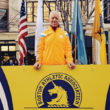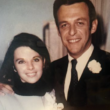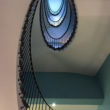How to Manage a Prostate Cancer Diagnosis | Bill Smithburg
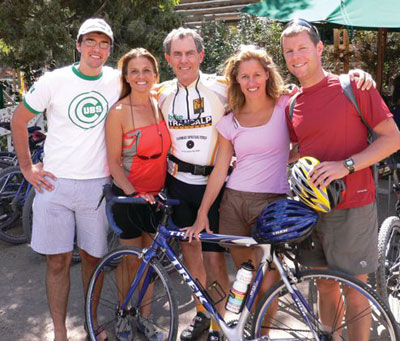
by Cissy Lacks
The tennis playing, helicopter skiing, fitness exerciser had a rising PSA but his doctor told him not to worry about his 3.5 PSA result and to take another test in six months.
A trusted friend told him that PSA velocity, the value of the rise, was as significant an indicator for further action as his PSA.
“Running a major corporation, you’re going to have crises and problem solving is part of being a CEO. I could not ignore the information I received.
I knew I had to understand the problem and solve it. No whistling by the graveyard,” Smithburg said.
Smithburg hadn’t dealt with a medical problem since he was a 7 year old, and those decisions were up to his parents. In 1945, he was caught in the polio epidemic. After a hospital stay and being one of the lucky ones with no after effects, one consequence was his being motivated to lead a healthy life.
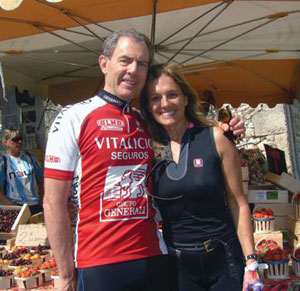
“My wife and I joke that when I eat a hamburger, I should go to confession to absolve any guilt,” Smithburg said.
Also, he made a commitment to healing institutions and learned to respect the technology of advanced health care. He served on the Board of Northwestern Memorial Hospital for many years and was chairman for a time.
Also, he made a commitment to healing institutions and learned to respect the technology of advanced health care. He served on the Board of Northwestern Memorial Hospital for many years and was chairman for a time.
It was decision time.
“Men have to be personally proactive,” Smithburg said.
He took a month to research options before he made his treatment decision, clearing his calendar from other obligations.
“It was going to be one of the most important decisions in my life and I was going to educate myself about the condition and the alternatives,” Smithburg said.
Two of his friends had chosen “watchful waiting.”
“Both died as a result of prostate cancer,” he said.
“I had a clear recognition that we’re all mortal, but I enjoy my life and my family and realized that doing nothing was not an option. I have three grandchildren and two on the way. I plan to be part of their lives.”
Smithburg investigated treatment possibilities and spent hours researching and consulting with doctors specializing in each.
“Seed implants. No. If I had the procedure, further radiation was out as a treatment option for recurrence. The same was true for other radiation treatments.
“Laparoscopic prostatectomy. No. Not for my nervesparing surgery. No tactile feel. I wanted the surgeon to have his hands on my nerves and feel everything when he lifted the nerves to remove the prostate.

“I even looked into cryosurgery. Freezing parts of the prostate and not knowing for sure if it hit all the cancer. No. Not a chance.
“I wanted the cancer out and hopefully to be done with it,” Smithburg said.
His wife, Maria, helped him with the decision and agreed.
“Get it behind you,” she said.
He knew that the surgery was complicated, but he also knew, “I was going to the ‘Babe Ruth’ of prostate cancer surgeons. Experience and results are everything, and surgeons should be able to share how many surgeries they’ve done and what the results were. Dr. Catalona had all the information available to me,” Smithburg said.
Relating to information, he has a hard time understanding the controversy about PSA screening.
Prostate Specific Antigen (PSA) Findings & Treatment Possibilities
“PSA findings come from nothing but a blood test. If the results are questionable, then a biopsy may be warranted. You have information and you make a judgment call. It’s up to the patient. Doing nothing because you’ve chosen to know nothing seems like a recipe for disaster and maybe a recipe for dying from a disease that could have been treated successfully. It’s hard to believe that any man or any one in the medical community would limit information easily available,” Smithburg said.
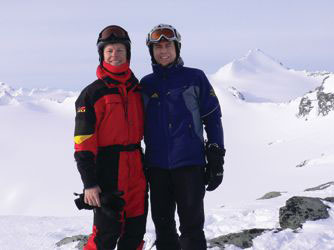
Smithburg said he was nervous the day before the surgery, as anyone would be, but he knew from the biopsy that he had lowgrade, early stage cancer and was optimistic about what the results would be.
His daughter and two sons were at the hospital during his surgery for both him and his wife. His sister flew in to be there too.
“That family support was so helpful and reassuring,” Smithburg said.
He was surprised at his quick recovery. Not that everyone should expect it, but three days after surgery, he and his wife had lunch with friends at a restaurant.
The most difficult week for him was the week after the catheter was removed.
“I just had to wear what I had to wear. Then, that week was over; the healing started and I didn’t have any concerns I couldn’t deal with. Improvement was constant.”
After the surgery, he learned the recovery is up to the patient. “I did everything I could do to recover,” Smithburg said. “I walked as much as possible; I did the treadmill a few days after surgery; I did upper body exercises. My only constraints were from Dr. Catalona ‘to not overdo’ and to stay away from abdominal exercises or getting my pulse high. I was back on my full workout schedule in a matter of weeks.
“I was a good patient. I was diligent,” he said.
Now four years later, at 73, Smithburg continues to lead an active life.
He recommends diligence as a priority for making healthcare decisions.
“My intent in dealing with my prostate cancer was to mitigate the risk. And being proactive is absolutely essential. Information is not something to fear; it’s something to use and to share,” Smithburg said.



